A Window Portable Device Class Lib
Note: this is the work of Christophe Geers from a series of blogs which can be found here
I mainly added a few functions, a VB console test, and converted it to a Class Lib. I tweaked a few things in the code to streamline it, but they are not worth further mention.
Documentation:
Study Mr Geers' blog.
Visual Studio's IntelliSense will also be valuable in identifying the properties and methods available.
Important Notes
Caveat
I have very few portable devices (and cant find one), so testing was rather limited.
Files and Folders
The term File and Folder in this context can be misleading.
As the article makes clear, there is a PortableDeviceObject type (class) from which both PortableDeviceFile and PortableDeviceFolder inherit. PortableDeviceObject has a property collection named Files, but that collection actually contains PortableDeviceObjects. Any one of the items in that collection may in fact be another folder.
I started to implement a Folders collection as well, then figured out why it is the way it is. Since a folder can contain sub-folders, it would be more confusing and problematic to link files to subfolders to folders to a PortableDevice. So, I left it.
This means each item in the Files collection must be tested to see whether it is really a File or a Folder. This would typically be done one of two ways:
' using VB operator
If TypeOf item Is PortableDeviceFolder Then
Console.Beep()
End If
' using NET Type method
If item.GetType Is GetType(PortableDeviceFolder) Then
Console.Beep()
End If
To make things slightly simpler and more object oriented, I added an IsFile and IsFolder function to PortableDeviceObject which allows:
If item.IsFolder Then
DisplayFolderContents(dev, CType(item, PortableDeviceFolder))
End If
There is also a method which returns an ItemType enum value (there is also a static version which may be useful):
' using GetItemType
If item.GetItemType = PortableDeviceObject.ItemTypes.File Then
Console.Beep()
End If
Resources
Mr Geers' original source
Another C# Project for WPD which may be useful
MSDN Windows Portable Devices documentation for more information when you get ready to make mods later.
A VB Console app (just a translation) shows how to use some of the functions. Study the blog fr details.
The code is long, would largely duplicate Mr Geers' blog, and I am disinclined to post code which is not mine. Besides, C# code would apparently do you little good if you can't compile it to a DLL. So, to answer the question posed, Are there any libraries available for VB.net which will enable me to easily access a MTP device?:
Yes. The modified source, project files (VS2012), a new VB console test app and Binaries (PortableDevices.dll) can be downloaded from DropBox. The bin/compile folders includes Builds for AnyCPU/Release and x86/Release
- I think you will want to keep the
Interop.* DLLs located in those folders with the PortableDevice.DLL. For instance, copy them both along with the DLL to your tools directory. I am not sure why he did it that way.
- To use the new Class Lib in a project, you obviously will need a add a reference to your brand new
PortableDevice.DLL.
Of course, with the project source files you can load it and recompile to whatever format you desire. VS compiles C# projects the same way you do in VB.

Works on My MachineTM
Again, to be clear, this is not my work. I mainly compiled it to DLL.
